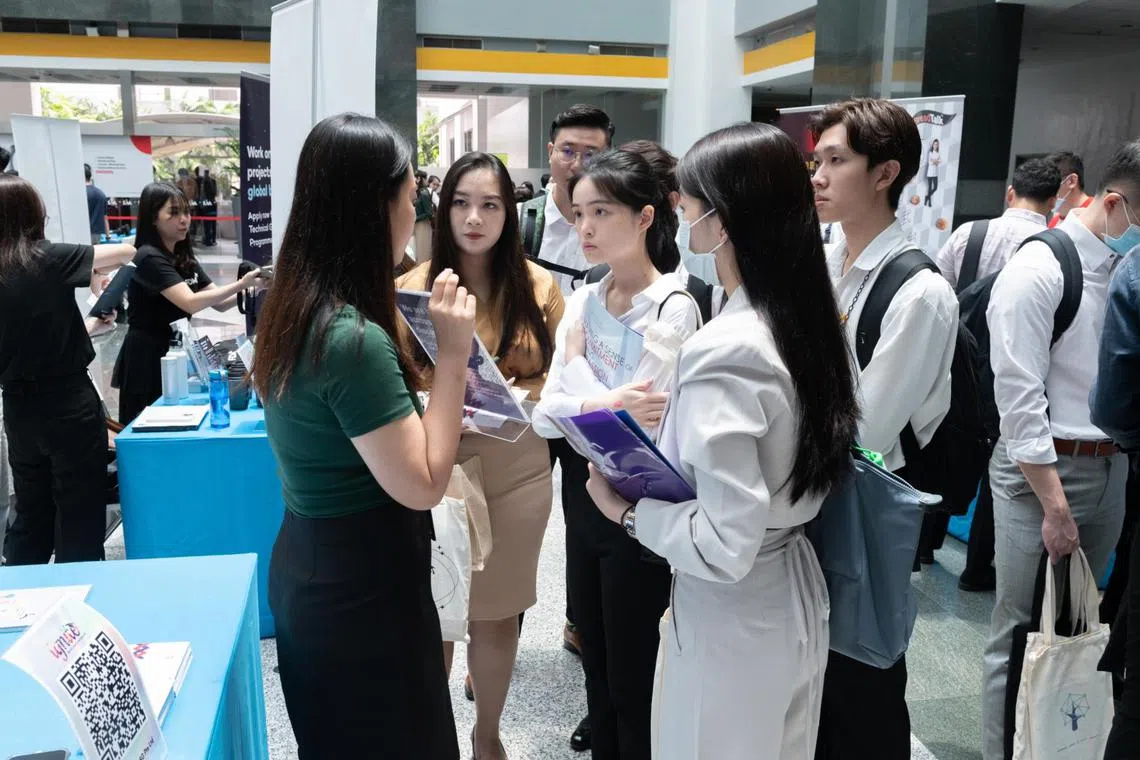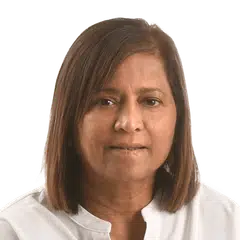askST: What to consider when choosing a private school for degree studies
Sign up now: Get ST's newsletters delivered to your inbox

The Singapore Institute of Management currently has more than 16,000 students and the majority are Singaporeans studying full-time.
PHOTO: SINGAPORE INSTITUTE OF MANAGEMENT
As part of a three-week askST series on university education, The Straits Times addresses how to assess private schools offering degree courses from overseas universities.
Q: My daughter wants to pursue a business or an economics degree, but feels that she is unlikely to get a place in her preferred course at the local universities. My husband and I cannot afford to send her overseas. Is the Singapore Institute of Management (SIM) a good option for her? What are the costs of doing a degree through SIM?
A: SIM currently has more than 16,000 students and the majority – 70 per cent – are Singaporeans studying full-time. Most of them hold a polytechnic qualification, with a small percentage from the A-level route.
First, ensure that your daughter finds a course which suits her interests, strengths and future career plans.
SIM offers quite a few business and economics-related courses and with various overseas partner universities – the University of London (UOL) and University of Birmingham in Britain, RMIT in Australia, as well as University at Buffalo in the United States.
It is also important to assess the reputation and standing of the universities in the fields she is interested.
She can find more information about the universities and their standings by checking their websites, as well as by education consultancies that do rankings, including subject rankings. These include QS and Times Higher Education.
I would also recommend that your daughter attend the open-house events at SIM to talk to the lecturers and programme managers.
Costs are an important consideration. Students taking the degree courses at SIM from its partner universities are not charged the same fees as students on home campuses overseas.
Here are some examples.
The total cost of a UOL degree course over three years at SIM is about 40 per cent of the on-campus tuition fee in Britain.
For instance, the three-year direct honours degree programmes in economics, management, finance and the social sciences awarded by UOL with academic direction by the London School of Economics and Political Science (LSE) cost $35,000 at SIM, compared with more than $80,000 at the UOL campus.
Academic direction means that staff at LSE are involved in developing the syllabuses and preparing the study materials, and are responsible for the assessment of international students. The degree which is awarded by UOL has LSE’s name on it.
RMIT offers a three-year business degree course to SIM students which costs $46,000. If your daughter were to go to Australia to do the course, it would cost her A$120,000 (S$109,050) in tuition fees alone.
Another thing to note: Polytechnic and SIM diploma graduates with relevant diplomas may be able to shorten the degree programme due to credit exemptions. Hence, the fees will be further reduced, to half of $46,000.
You should also look up information on bursaries and scholarships awarded by SIM.
While the bursaries and grants are for students who need financial aid, the undergraduate scholarships are meant to recognise students who excel academically or have achievements in sports and the arts.
Q: What about the course and examination standards of partner universities? Are they as rigorous?
A: The degree programmes run by SIM are awarded by the respective overseas partner institutions. All assessments and exams are set and marked to the same standard as in the home campuses. This is why for many of the degree courses, the students can transfer to the home campuses of the partner universities midway through their studies.
Q: Does SIM have co-curricular activities (CCAs), sports and other opportunities that give students exposure?
A: Visit SIM with your daughter and you will see how committed the school is in providing a holistic education. Its Clementi Road campus has various sports and performance arts spaces, including a multipurpose sports hall, a dance studio and a performance arts theatre.
The school offers more than 80 clubs and student councils, adding to the vibrant campus environment with platforms for leadership and personal development.
Besides the fun and games, students will have the opportunity to plan, organise and manage the activities, helping them to grow as leaders and develop organisational and people skills.
Employers are increasingly looking beyond grades and so students’ out-of-classroom activities matter. They want graduates with leadership skills, resilience and ability to work with teams.
Some of the CCAs in SIM offer global exposure. The students in the International Affairs Society participate in the Harvard National Model United Nations Conference. It is the world’s oldest, largest and most diverse student-run Model United Nations conference that brings together hundreds of college students from over 40 countries to discuss pressing global issues.
Before the Covid-19 pandemic, SIM students also represented the institution in various global and regional level events, including climbing expeditions in Malaysia, Indonesia and Vietnam; community service in Sabah; and participation in the Asean and World University Games and Championships.
SIM also offers a whole host of support programmes – whether it is to help students with their academics or job search.
There is the Peer-Assisted Learning (PAL) programme, which is a student-to-student support network that helps students to adapt and transit into their new university life.
For those who find certain subjects challenging and demanding, PAL leaders help them work through common problems and develop their learning strategies. They also share essential study skills, helping the students to be self-directed and independent in their learning.
SIM also offers workshops from note-taking during lectures to essay writing to exam strategies.
The Career Connect office supports students in developing a competitive edge in their career. This is done through career workshops and career guidance, whether it is reviewing of resumes or mock job interviews.
The university also holds annual career fairs with participation from firms across many industries, including banks, management consultancies, accounting firms and technology companies.
Q: What are the job prospects like?
A: In terms of employment rates and salaries, graduates of private education institutions generally tend to lag behind their peers from the public universities.
SIM is one of the few private institutions that regularly surveys its graduates on their job outcomes. A survey of its graduates who completed their degrees in 2020 and 2021 found that they had an employment rate of 88.6 per cent, with a median gross monthly salary of $3,000.
The university also collates information on the firms its graduates head to.
Many of its 2021 business graduates secured executive roles in companies such as Deloitte, ST Engineering and Walt Disney; as well as analyst roles in companies and banks such as DBS, OCBC, Shopee, JP Morgan Chase, TikTok, Dow Jones and Nielsen IQ.
SIM graduates with degrees in economics and management, finance and politics have been employed by companies such as Ernst & Young Singapore, Global Microelectronics and Cloudflare.
There are also graduates who became civil servants in various ministries.
Quite a few of the UOL graduates also head for further studies.
Annually, a dozen or more go on to study for their master’s degrees in Britain, with many placing LSE as their first choice. Other alumni have also been accepted into Cambridge, Oxford, University College London, Warwick, Durham and Imperial College.
I interviewed Yishun Innova Junior College (JC) student Muhammad Mirza Mohamed Erwan, 25, who went to SIM as his A-level results could not help him gain entry to local universities.
Three years later, he graduated at the top of his class and received the SIM Gold Award for Bachelor of Science in Business and Management Class of 2021.
He said: “In JC, I wasn’t really that engaged in my studies and did not put in that much effort. But at SIM, some of my lecturers were inspiring and supportive, and maybe because I was more mature, everything clicked and I became very interested in what I was studying.”
After hearing from his peers who did postgraduate studies at top British universities, he set his sights on the renowned LSE.
He is now in London, pursuing a Master of Science in Finance at the university. When he completes his course, he hopes to look for work opportunities in the British capital, one of the top financial centres of the world.



